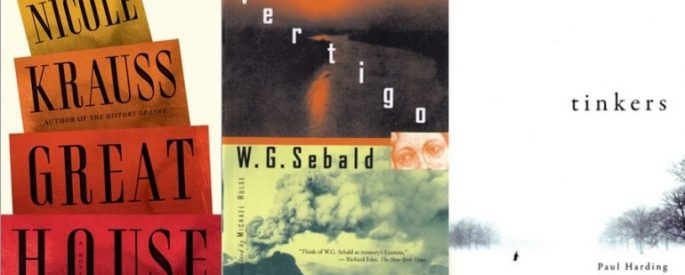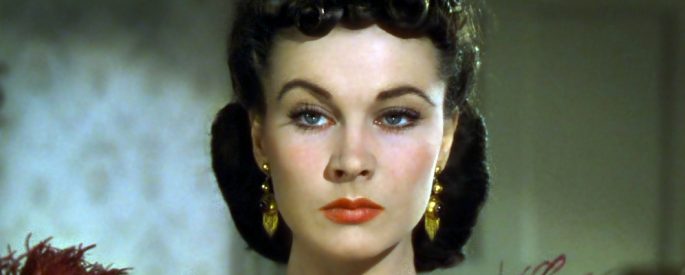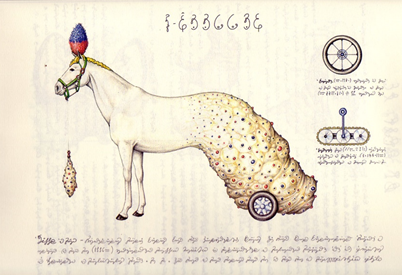Reading Archive
Discovering Milton Resnick

Milton Resnick (1917—2004), was one of the most articulate and interesting of the abstract expressionists. I knew his work, but this past summer I discovered his personal history through a recently completed manuscript, Milton Resnick: Painter in the Age of Painting, by Geoffrey Dorfman, author of the well-received, Out
Writing the Mind: Nicole Krauss, W.G. Sebald, & Paul Harding

How does one apply the adage show don’t tell to the interior of the mind—a vast expanse one inhabits daily, but never sees? While Pixar’s Inside Out turns the subconscious into a playful and sometimes dark adventure, literature must rely on language—pacing, syntax, and form matching function. In the early
The Best Short Story I Read in a Lit Mag This Week: “The We of Me” by Lucy Jane Bledsoe
As the election cycle ramps up, it becomes more and more apparent the many philosophical divisions splitting our country here in the United States. In her story “The We of Me” (The Rumpus), Lucy Jane Bledsoe takes us into a future dystopia where her characters—our descendants—are drawn to transcend
The Work of Fiction and the Fiction of Work

A life is divided into three parts: the time before you’re able to work, the time after you’re able to work, and the monstrous bulk of time between. After obedience to the law and some basic moral code, work is one of the great demands placed upon the able.
Literary Enemies: Gabriel García Márquez vs. Alejandro Zambra

Literary Enemies: Gabriel García Márquez vs. Alejandro Zambra Disclaimer: García Márquez has no enemies but the F.B.I. A few weeks ago I went to a panel at the National Book Festival that featured Alejandro Zambra, a Chilean writer I like a lot.[1] (Yes, I started reading him because of
The Best Short Story I Read in a Lit Mag This Week: “Away” by Karin Lin-Greenberg
Yuval Noah Harari argues in his book Sapiens: A Brief History of Humankind that much of humankind’s success as a species is owed to its ability to create fictions. Harari focuses primarily on large-scale, societal fictions, say the nation or the corporation. In “Away” (Green Mountains Review), Karin Lin-Greenberg
Do-Overs: The Bad Guy Has a Moment

Complicated bad guys are nothing new. There’s something delicious about complex entertainment; we’re able to envision ourselves in the shoes of the antihero and exact revenge or serve righteous justice, but we’re also able to vicariously live through their actions that lie outside the boundaries of acceptable behavior. When
Reading as Intoxicant, Part II: Ten Books That Are Basically Drugs

Don’t do drugs, kids; read books instead. More often than not, they inspire the same chemical rush with less brain trauma. Herein is a list of ten books with intoxicating, stimulatory, or hallucinatory qualities for the literarily psychotropically-inclined. Though no doubt many deserving books would be right at home
“Sometimes she is a space” : Janice Lee’s Reconsolidation: Or, It’s the ghosts who will answer you

Taking up the mantel of memory and elegy is no easy task, but Janice Lee’s new book Reconsolidation: Or, it’s the ghosts who will answer you embraces the ghosts. The text is not so much a reflection on writing, loss, memory, and death, but a twisted projection of those
The Best Short Story I Read in a Lit Mag This Week: “Stamp Fever” by Colette Inez
What constitutes the difference between delusion and imagination? Where does one end and the other begin, or are they related at all? Colette Inez explores these intersections in her story “Stamp Fever” (The Georgia Review), from the perspective of a young boy struggling to overcome family difficulties. Our introduction to